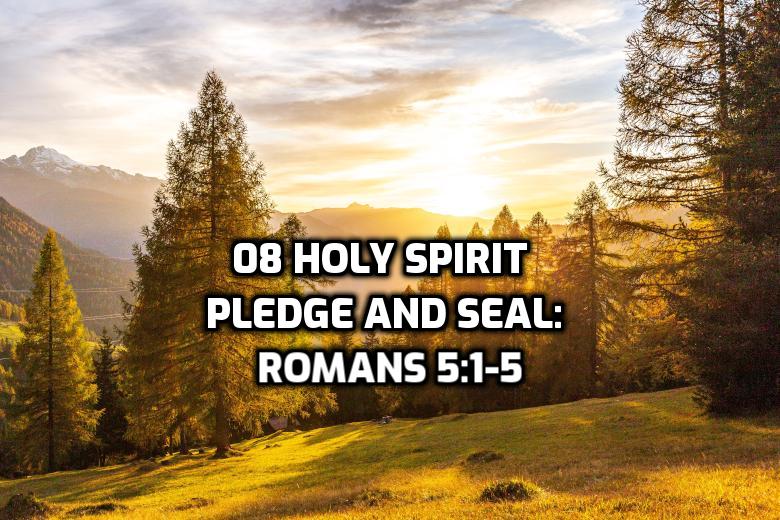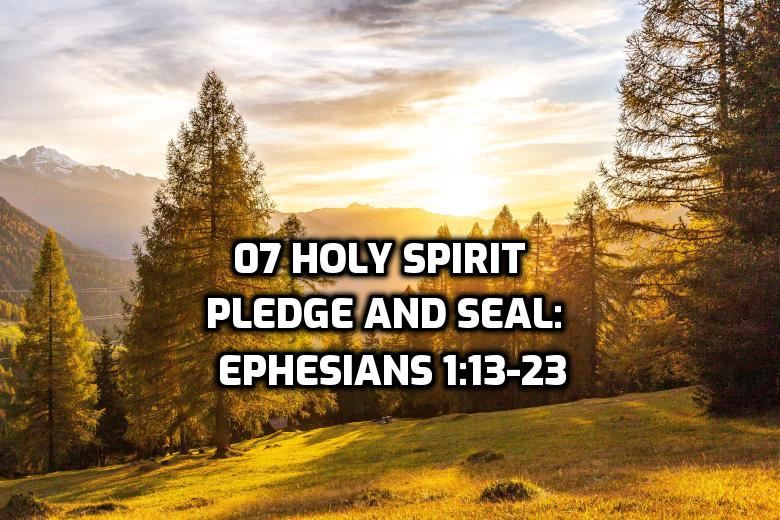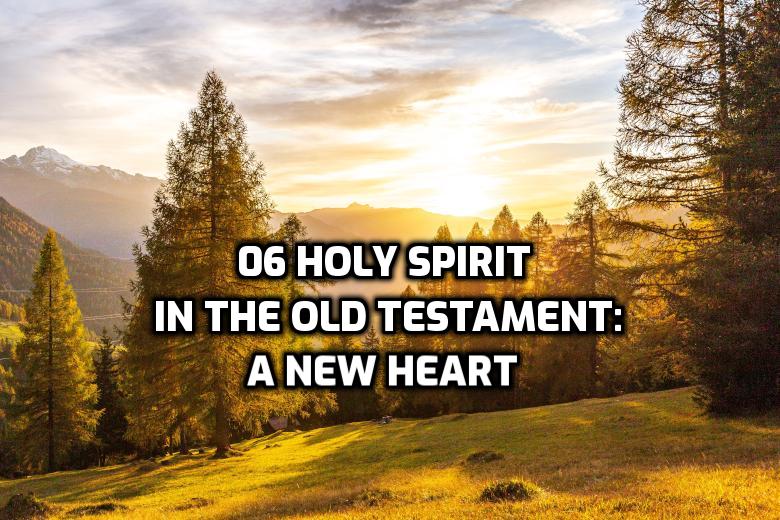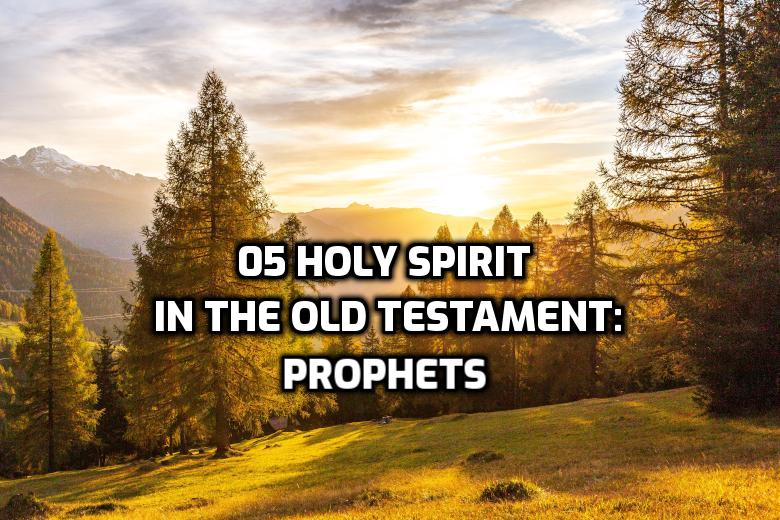Jude use of the Old Testament in his letter.

Latest Blog Posts from Wednesday in the Word, the podcast about what the Bible means and how we know.

Jude use of the Old Testament in his letter.

The New Testament is our divinely inspired commentary on the Old Testament. When studying a passage, it’s often helpful to see how other biblical authors understood it. Here is James’ use of the Old Testament in his letter.

As a new believer, I thought the Holy Spirit was like the “force” in Star Wars: something I had to access to find success. Paul has a different view in this passage. The Holy Spirit is the active love of God intervening to make us people who will persevere in faith.

The New Testament is our divinely inspired commentary on the Old Testament. When studying a passage, it’s often helpful to see how other biblical authors understood it. Here is Mark’s use of the Old Testament in his gospel.

The New Testament is our divinely inspired commentary on the Old Testament. When studying a passage, it’s often helpful to see how other biblical authors understood it. Here are Matthew’s quotations and allusions to the Old Testament in his gospel.

The first third of the book of Exodus takes place in Egypt. The Israelites had lived in Egypt for 400 years and were steeped in Egyptian culture. The cultural and historical setting of Exodus is ancient Egypt. Here’s a brief introduction.

The time between the end of the Old Testament (400BC from the prophet Malachi) to the preaching of John the Baptist (25 AD) is known as the “intertestamental” period. Here’s an overview of what happened.

Paul describes believers as sealed with the Holy Spirit. A seal fulfills a past promise and pledges a future inheritance. A King’s seal had a three-fold purpose: 1) to guarantee authenticity, 2) to name the rightful owner, and 3) to protect from being tampered with or harmed.

The ancient historian Flavius Josephus identifies four rival religious philosophies among the Jews at the time of Jesus: Pharisees, Sadducees, Essenes, and Zealots.

When it comes to biblical history, you can divide scholars into minimalists and maximalists. Minimalists believe almost nothing in the Old Testament is historically accurate. Maximalists believe the Old Testament is a reasonably accurate historical document. Among the maximalists, there are two main competing theories about the date of the Exodus: early and late.

After the death of King Solomon, two of his sons, Rehoboam and Jeroboam, fought for the throne. When Rehoboam harshly raised taxes on the people, the 10 northern tribes rebelled and installed Jeroboam as their king, creating the northern kingdom of Israel. The two southern tribes, Benjamin and Judah, remained with Rehoboam and became the kingdom of Judah.

Study questions, maps, charts, key words, history, background, outlines, and links to help you study the Old Testament book of Malachi.

Both the Old and New Testaments speak about the need for God to spiritually renew us and change our hearts. Both associate this spiritual renewal with the Spirit of God. But there is only one really clear Old Testament passage on this topic.

Study questions, maps, charts, outlines, and links to help you study the Old Testament book of

Study questions, maps, charts, outlines, and links to help you study the Old Testament book of Haggai.

Study questions, maps, charts, outlines, and links to help you study the Old Testament book of Nahum.

After the death of King Solomon, two of his sons, Rehoboam and Jeroboam, fought for the throne. When Rehoboam harshly raised taxes on the people, the 10 northern tribes rebelled and installed Jeroboam as their king, creating the northern kingdom of Israel. The two southern tribes, Benjamin and Judah, remained with Rehoboam and became the kingdom of Judah.

Most of the Old Testament references to the Holy Spirit involve his work empowering the leaders of Israel to protect the nation. But a second way we see the Spirit of God working in the Old Testament is giving revelation to the prophets.

Introductions to Background, history, chronology and books of the Bible.

Study questions, maps, charts, outlines, and links to help you study the Old Testament book of Zephaniah.

Study questions, maps, charts, outlines, and links to help you study the Old Testament book of Jonah.

Study questions, maps, charts, outlines, and links to help you study the Old Testament book of Obadiah.

One of the main themes in the Old Testament regarding the Holy Spirit is that God empowers Israel’s leaders through His Spirit to bless the nation and keep His covenant promises.

Study questions, maps, charts, outlines, and links to help you study the Old Testament book of Amos.

Study questions, maps, charts, key words, history, background, outlines, and links to help you study the Old Testament book of Joel.

WitW: Do you know who the Holy Spirit is? The 2020 State of Theology survey shows fewer evangelicals understand the Holy Spirit’s work in salvation. Let’s study the Holy Spirit together.

Study questions, maps, charts, outlines, and links to help you study the Old Testament book of Habakkuk.

Study questions, maps, charts, key words, history, background, outlines, and links to help you study the Old Testament book of Lamentations.

In 1Corinthians 2, we learn two more important works of the Spirit: 1) The Spirit reveals the thoughts of God to His chosen messengers. This is revelation. 2) The Spirit gives understanding to all believers so that we embrace the claims of the gospel.

“One is sometimes (not often) glad not to be a great theologian; one might so easily mistake it for being a good Christian.” – C.S. Lewis

Nebuchadneeezar II was king of Babylon from 604-562 BC

You can now find Wednesday in the Word on Amazon music.

Study questions, maps, charts, key words, history, background, outlines, and links to help you study the Old Testament book of Song of Solomon.

Quotations/Allusions to the Old Testament book of Daniel in the New Testament

1Corinthians 12 teaches an important distinction between the type of work the Holy Spirit does. The “universal” work of the Holy Spirit is a work that he does for all believers to bring about the inner transformation of faith. The “individual” works of the Holy Spirit are works he does in some believers but not others.

Study questions, maps, charts, outlines, and links to help you study the Old Testament book of Micah.